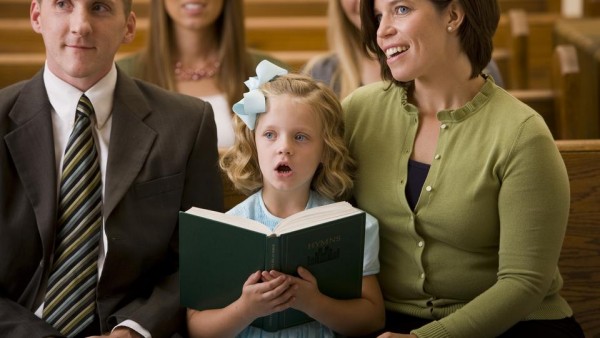Hey Fellow Millennials, You Should Know Your Church
I write this article sitting in the spectator section of the Orthodox Presbyterian Church's 83rd General Assembly. It's the fourth assembly I've attended and yet another in countless church government functions I've sat in on as a member of my denomination. I inherited my dad's love for church governance. When I was younger and before he was a minister and was a ruling elder, he used to take my family to presbytery meetings. The result was a love for the church government and a regular use of Robert's Rules of Orders among my siblings and I to decide which game to play or what to eat for lunch.
When I went to school, a friend of mine commented on my knowledge of my denomination. "I don't think most kids our age, or girls especially, know that much about their church." And another friend of mine, after a long discussion about this overture and that controversy in this and that presbytery, said, "It's nice to finally find someone else up to date on all this!"
Upon further discussion of this with said friends, both made the remark that most people in the millennial age range are not only lacking in understanding of how their church government works and the implications of such, but they also (not always, but it's a trend) don't really care. They consider such things dusty and adult, boring and pointless.
The problem is, we are adults now. And someday our fathers and mothers in the church will hand down years of church heritage and doctrine to us. And there's no better time to learn all of this weighty, important information.
Now, I'm not suggesting you go and memorize your church's book of order, but you should skim it at some point, at least. It is your right as a church member to understand how your church government works and it is a blessing that your spiritual predecessors took time and energy to ensure you and your fellow members are taken care of and are benefited today. If you are a Presbyterian or Reformed Christian, or a member of a church with a synod-type government where assemblies are open to the public, and if you are able, you should try and drop in for at least one day of at least one presbytery (or equivalent) meeting. Yes, it will probably go over your head a little bit at first, but it makes sense quickly and it is a blessing to see the church at work for the protection and care of Christ's flock!
Even more important, though, is knowing what your church believes, both morally and theologically. Even churches that claim "No creed but Christ!" have a statement of what they believe (which is in itself a creed, but that can of worms will remained unopened for this blogpost). On a denominational level, most denominations have an adopted standard to summarize their understanding of scripture. The OPC's standard is the Westminster Confession and Catechisms. Also, your denomination has probably released statements on social and moral issues as well. In today's day and age, this is especially important to know. A friend of mine was mortified when she dug deeper into her current church's stance on homosexuality and immediately switched to a denomination more aligned with her personal views. "Had I known that sooner, I would've been gone a long time ago," she told me.
In short, it is important for us young whippersnappers to know what our churches believe in and how they work. It's easy to do these days, thanks to the internet, and is very beneficial for communication between you and your home congregation, for your prayers for your denomination, and for your own understanding. So kick back, find your church's standards, and enjoy some edifying summer reading, or go drop in on your local presbytery meeting and get a crash course in Robert's Rules and what's up in the local church.



Great words. My girls share you experience in some measure.
ReplyDeleteThis comment has been removed by the author.
ReplyDelete